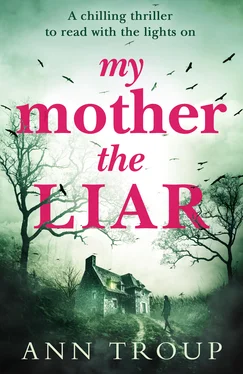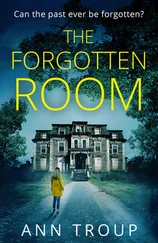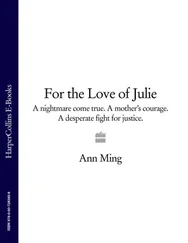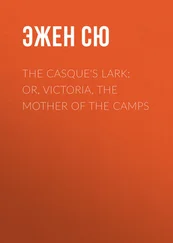For one lonely moment, she thought about ringing Gran but would have to explain why she’d been sent home in disgrace. It wasn’t worth the hassle. Instead, she wandered out into the kitchen and began to rummage in the cupboards for something to eat. She found a pot noodle lurking at the back of the cupboard, but rejected it on the grounds that appealing as it was in principle, it would taste of reconstituted cardboard. They always did. Eventually she settled for a microwave pizza.
She picked at it, nibbling at bits of the topping as she watched TV mindlessly, trying to decide whether to have a bath, or ring round to see if anyone wanted company. In the end, she decided to work on an essay, a case study on one of the patients at Tynings – the elderly care unit where she had her placement. Bill had been the wrong patient to choose in a way. She couldn’t examine his past as nobody knew about it.
He had been a street drinker until the police sectioned him and he was admitted to the unit. Then he had been diagnosed with Wernicke-Korsakoff syndrome, an alcohol-induced dementia. Because it was a rare diagnosis, he had seemed like an interesting case to study at the time; now that she had to produce fifteen thousand words on the man it was her worst choice ever. Bill wasn’t even a pleasant character – he was dirty, rude and he gave her the creeps. But it was too late to change now. The essay was due in a week and she would just have to make the best of it.
***
The doorbell rang, jolting her out of her reverie with the subtlety of a brick. A plump woman with a vaguely familiar face stood on the doorstep.
‘Sorry to bother you, love. Is Charlie in?’
‘He’s not in at the moment. I can get him to ring you when he gets back,’ she said politely. If your dad was a builder it wasn’t unusual to have neighbours you didn’t know banging on the door because they’d locked themselves out and wanted to borrow a ladder, or they had a leak, a blockage or some emergency they couldn’t fix themselves.
‘Oh no, don’t worry, I only wanted to drop this off to him – only I thought it might be important.’ She reached into her pocket and handed a broken SOS bracelet to Amy. ‘I think your mum must have dropped it when she had that fit in the café today, poor woman. I hope she’s feeling better now. Quite a thing to see when you’re having a quiet coffee of a morning and minding your own business!’ she said with a laugh. ‘I didn’t find it until after they’d gone or I would have given it to her then, but I remembered seeing your dad’s van parked on the drive so I thought I would drop it off on my way home. It’s lucky really – I wouldn’t have had a clue what to do with it if I hadn’t recognised your dad. He did a lovely job on my sister’s extension. Anyway, I must be off. Hope your mum is better, love,’ she said as she waddled off down the drive.
‘Thanks,’ Amy said.
The word was so quiet, it wafted into the night unheard.
She shut the door and stared at the bracelet, puzzled. Perhaps the woman had the wrong Charlie Jones. But she couldn’t have – she’d said she recognised him. It dawned on her that maybe he did have a girlfriend, one he hadn’t told her about, one who had a habit of having fits in public places. Perhaps that was where he was now, in hospital with this sick woman – whoever she was. She pried open the bracelet to get a look at this woman’s details. If her dad had met someone, she had a right to know her name at least.
She had to look twice at the tiny piece of paper. The name inside the identity bracelet belonged to Rachel Jones, with the Jones crossed out and Porter scribbled in next to it. But it couldn’t be. That was the name of her mother, and her mother was dead.
This couldn’t be right.
The truth didn’t dawn – it hit her full pelt like a punch, leaving her reeling from the impact. She felt sick.
She threw the bracelet across the hall as if it was a toxic, physical lie. Staring at it she half hoped it would dematerialize and take itself away from her like it had never existed. But it remained on the bottom stair – tauntingly real.
The address had said Bayswater. She shook her head and went back into the lounge. She would prove this wrong. At most, this would be a coincidence. Her family couldn’t have lied to her about this. It wasn’t possible; they weren’t that cruel.
She had discovered that the internet was a wonderful thing a long time ago. You could find out pretty much anything if you knew where to look, and 192.com was a good place to start. All you needed was a name, and a vague idea of location, then you could find out someone’s phone number, address, and even whether they were registered to vote. Rachel Porter had no phone, but she was on the electoral roll. She did exist.
Amy still wasn’t quite convinced that this Rachel Porter was the same Rachel who had married her father and died in childbirth like the tragic heroine of her fantasies. There would have to be a death certificate, a record of her mother’s demise, and she knew exactly where to look. Her dad had a trunk at the end of his bed where he kept his personal things. If the evidence she needed was anywhere it would be in there. Dispassionately she headed for the stairs, fully prepared to break into his privacy without a second thought.
Most of what she found consisted of old business accounts, copies of VAT Returns and the like. There were drawings and Father’s Day cards that she had made for him over the years, all wrapped in the shawl she had used as a baby. Before this she would have thought how sweet he was to cling onto such things, but at that moment in time she was so angry with him she wanted to tear everything to shreds.
At the bottom of the trunk was a tin box, its hasp sealed with a small padlock. She had never picked a lock, wouldn’t have had a clue how to do it and didn’t fancy spending hours pissing about with a hairgrip and getting nowhere. Neither was she prepared to waste time looking for the key. Her father was a security-conscious man, had spent too long in the company of felons not to be, so wherever the key might be, she would be unlikely to find it easily. Instead she ran down to the garage, taking the box with her, and broke it open with a pickaxe, the contents exploding all over the concrete floor on the third blow.
The box was ruined and she couldn’t have cared less; she was only interested in the contents.
Sure enough, she found her own birth certificate, and his and Rachel’s marriage certificate. No death certificate. Just a pile of letters addressed to HM Prison, Dartmoor.
She opened one and realised that they were the letters her mother had sent to him in prison. She opened more, scanning the handwriting and seeing that some were from her gran too. Only one envelope stood out from the others – it was stiff and large, addressed to their house, so more recent than the rest. It was from a London solicitor, from Rachel’s solicitor, warning Charlie not to contact or visit or they would have no alternative but to apply for an injunction against him. ‘My client has no wish for further contact with you,’ she read.
The letter was dated fifteen years ago when Amy had been five. Rachel had been alive and hadn’t wanted to see them. Hadn’t wanted to know her own daughter. The woman had gone so far as to threaten legal action if Charlie even tried.
If Amy’s mood had been angry before, this discovery only served to fuel the flames. Now she was incandescent! Her mother was alive and it looked like she was a complete bitch. What kind of woman walked away from her own child? Anger gave way to a swathe of hurt that scythed through her and nearly took her off her feet. Mind reeling, she tried to absorb what it all meant, what it said about her – Amy – the child her mother didn’t want. The sensation of abject sorrow was too much to bear and she had to shut the feeling away and cling onto the anger.
Читать дальше












